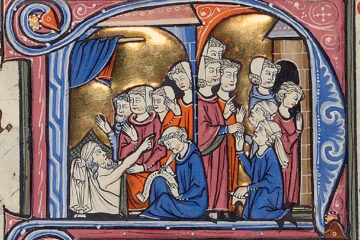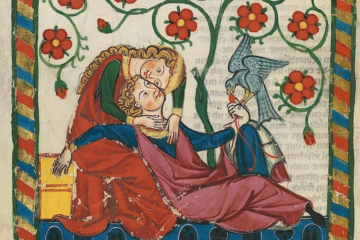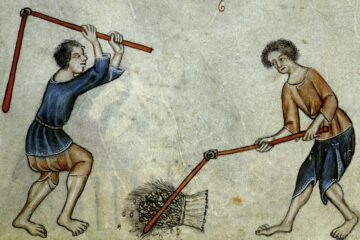Shortly after the coronation of Torrino III and the abdication of Queen Mother Elenor, rivaling Voices within the Parliament began to sow discord within the French Kingdom. A Kingdom weakened by a woman’s rule, is now put under even greater strain due to the ascension of a young King.
The Sixth French Parliament – March 1221
While convening during the Sixth Parliament, a new phenomenon took place. Up until that day the Voices were disorganized and representing the selfish interest of their courts alone. However, the nature and evolution of the Parliament have promoted the birth of factionalism within. Singular Voices have begun to work closely with neighboring and favorable Voices in order to increase their strength on the stage. During the Sixth Parliament, there were almost as many factions as there were courts represented. The largest factions to arise share some sense of loyalty to the Crown and support Torrino III’s legitimacy and right to rule. The Opposition calls them Diademites. The Opposition consists of many small factions, all wanting different things and working towards different goals. At the moment, they have no joint cause except for their lack of faith in the Crown. However, their core principles vary and it’s impossible to call the Opposition a faction at all.
Since the Voices are usually educated members of the courts they represent, this splintering of the Opposition, as well as the consolidation of the Diademites, has given rise to an intellectual movement within the Capital, with the many Voices residing there frequently gathering to debate their ideas and concepts, sometimes even in the public. These philosophers are producing and testing new modes of thought within Rosewood, driving innovation, scientific, social, political, and economic.
The Sixth Parliament unintentionally sparked a few heated debates regarding the rights of the Crown’s vassals, as well as the sovereignty of the realms surrounding France, and its own territorial integrity. The debates regarding taxation, specifically the one to be paid in levies and coin from vassal to King, as well as the naval contribution to the construction of a French Fleet, prompted divisive rhetoric. Some called for war against the smaller realms, urging France to fulfill its divine destiny and unite the lands of the French. Others suggest unification through diplomacy, while some warn of imminent war with Bretonia over Britanny.
In the end, the Parliament ended on a sour note with the Voice of Bellfort calling the Voice of Chatervill a “warmongering dog”. Many of the Opposition Voices marched out, while the Diademites condemned their unwillingness to compromise. The session was closed by Torrino III shortly after, kicking off the Troubles.
The Troubles – May 1221
Following the Sixth Parliament, certain courts within the Kingdom rose up and revolted against Torrino III. Mostly those along the northern coast and on the border with Britanny. On the 2nd of May 1221, what existed of the King’s navy was set ablaze by Opponents, sparking a need for direct action. It is argued that the attack occurred as a result of the King’s inaction and general apathy towards the March Lords on the Bretonian border, who were being attacked by skirmish forces with increasing frequency.
This unrest promoted discord within the Capital, with Opponent philosophers preaching to the masses, speaking out against the King. These Opponents and any peasant leaders that followed them were arrested by the Royal Guard, preventing an uprising within Rosewood. However, the Troubles presented a significant threat to the unity of the French Kingdom, but it also represented an opportunity for the King to assert his rule. A decisive victory would do just that. Torrino III, commanding his army defeated the rebels in Norman-Dover, preventing the spread of the rebellion, proving his strength, and stopping a full-on English invasion; there were rumors of a potential English invasion, with an attempt to take back both Normandy and Dover in the name of the English crown.
The Troubles ended in early July, with Torrino III having the rebels executed, and showing his neighbors as well as his subjects that his reign is just and righteous.


